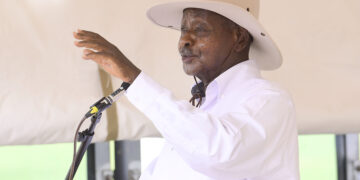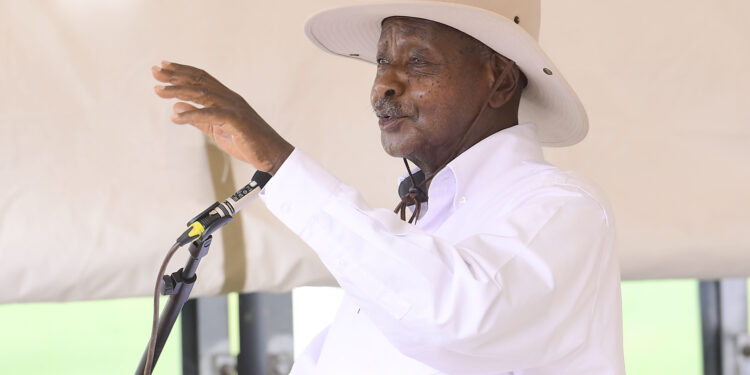President Yoweri Kaguta Museveni has reiterated his call to stop the exportation of raw materials, saying that Uganda loses a lot of money annually due to such an economic undertaking.
He instead advised Ugandans and foreign investors to instead work towards adding value to the country’s products in order to help the country achieve the much-desired socio-economic transformation agenda.
“We have been funding these efforts (of the private sector) but initially we were getting disturbances from the Ministry of Finance because it was not supporting them fully. For example, Dr. Muranga, I have been with her for a very long time but when you send her, they give her small money in portions. Why don’t you give her enough money since you are losing enough money each year in exporting? Why don’t you see that, that is a big loss. When you export unprocessed raw materials, you lose a lot of money. Then you have an Auditor General, why don’t you audit this lost value? Why have you never reported it?” the President expounded.
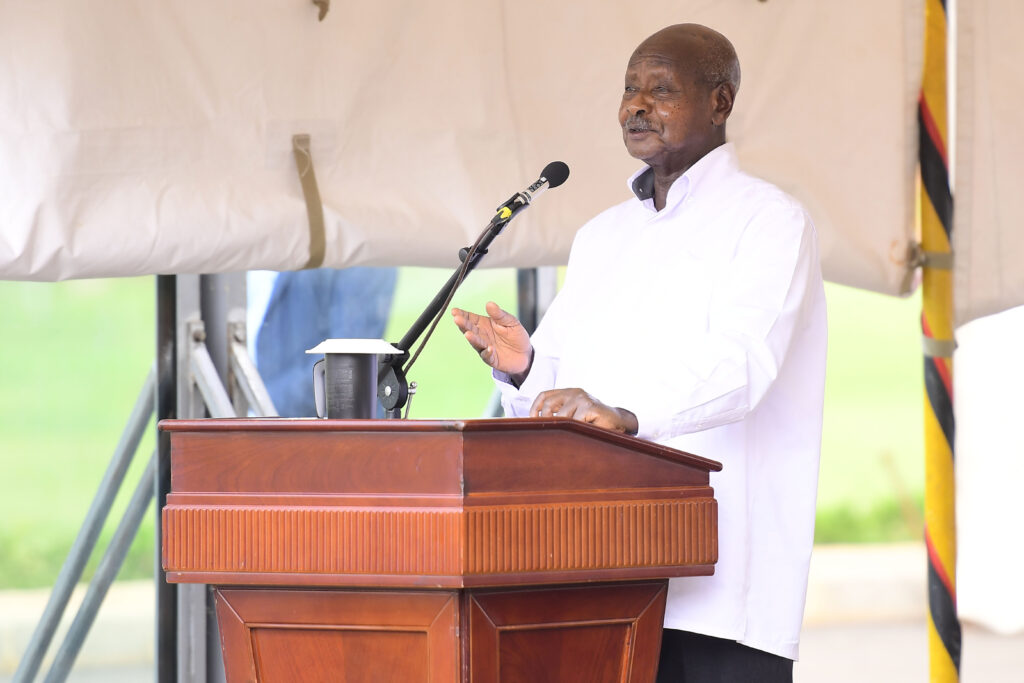
“When you export unprocessed coffee, you get 2.5 US Dollars per kilogram. That same kilo if you add value to it, you earn about 40 US Dollars and you are losing that every year. And that is no problem for the Auditor General or Committees of Parliament. Why don’t you see this loss and especially when an old man like me keeps on telling you and you have seen what other countries have done. A country like South Korea doesn’t have the resources that Uganda has but they are intelligent. They are mainly using intellectual labour. Therefore, I appeal to everybody concerned to wake up,” he added.
The President made the call today while officiating at the Presidential CEO Forum (PCF)’s two-day 4th Bi-Annual CEO Retreat held at Kiira Vehicle plant in Jinja.
Running under the theme: “Uganda’s Industrialization Agenda: Positioning Uganda as a net source of E-Mobility Solution in Africa”, the high-level meeting was aimed at highlighting the private sector’s driving role in the country’s development.
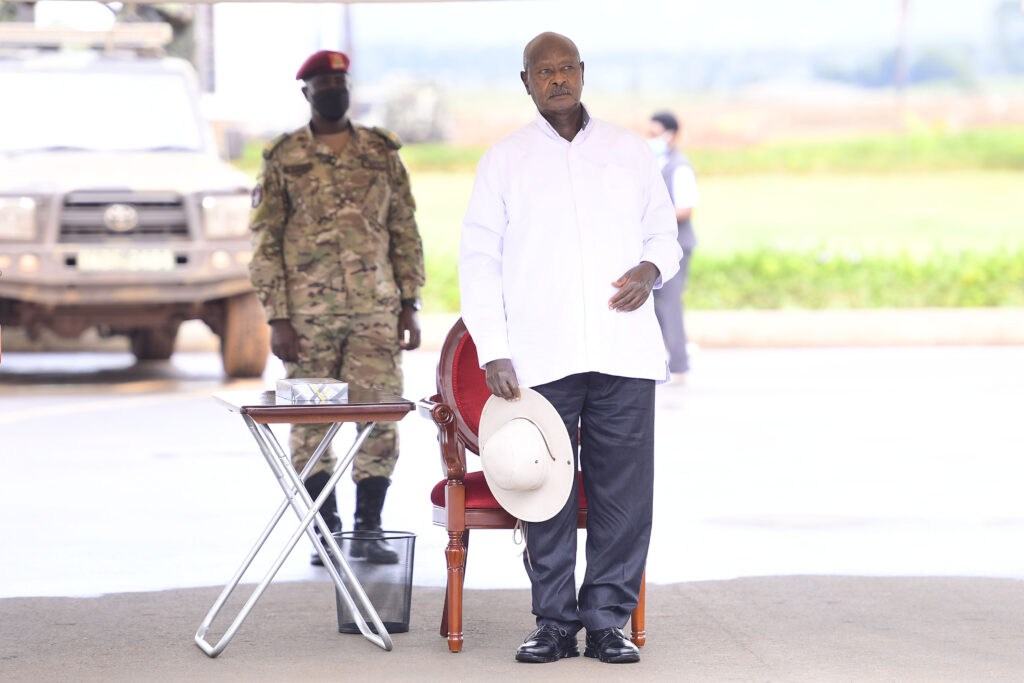
President Museveni also cautioned politicians and civil servants who frustrate investors; willing to develop the country.
He said years back, he wanted to add value to Uganda’s milk but some uninformed group of people frustrated him and the foreign investor and by the end of the day, the businessman gave up on investing in Uganda.
“Many years ago, I had brought somebody from Thailand with Mzee Mulwana. Those days I was struggling with value addition to milk because we had persuaded your people in the cattle corridor to join the money economy by producing milk for sale and they had come up, but the processing capacity was small. There was a small processing factory called Uganda Dairy Corporation which was producing only 60,000 litres per day at Bugolobi. This man wanted to come and build a factory and take over the old factory, expand it and make it produce milk but also produce juice and so on. He had a very good plan, but my people went to parliament and started insulting him, so his board stopped him from coming Here,” President Museveni explained.
“He walked out because of being insulted by people who have no value addition to themselves but cannot allow those who can add value to do it. I had to struggle for other years until I got an Indian who came but we had lost time. He expanded that little factory at Bugolobi from 60,000 to 500,000 litres a day and that is how Uganda was able to have vertical integration in the milk sector. There we moved. We now produce 5.3 billion litres from 200 million litres in 1986 and much of it is processed into liquid milk, pasteurized, ultra-heated, powder milk, butter, and cheese, we are even producing protein from milk which we are selling to the USA. With that factory, Uganda’s reputation went up and now we have many factories.”
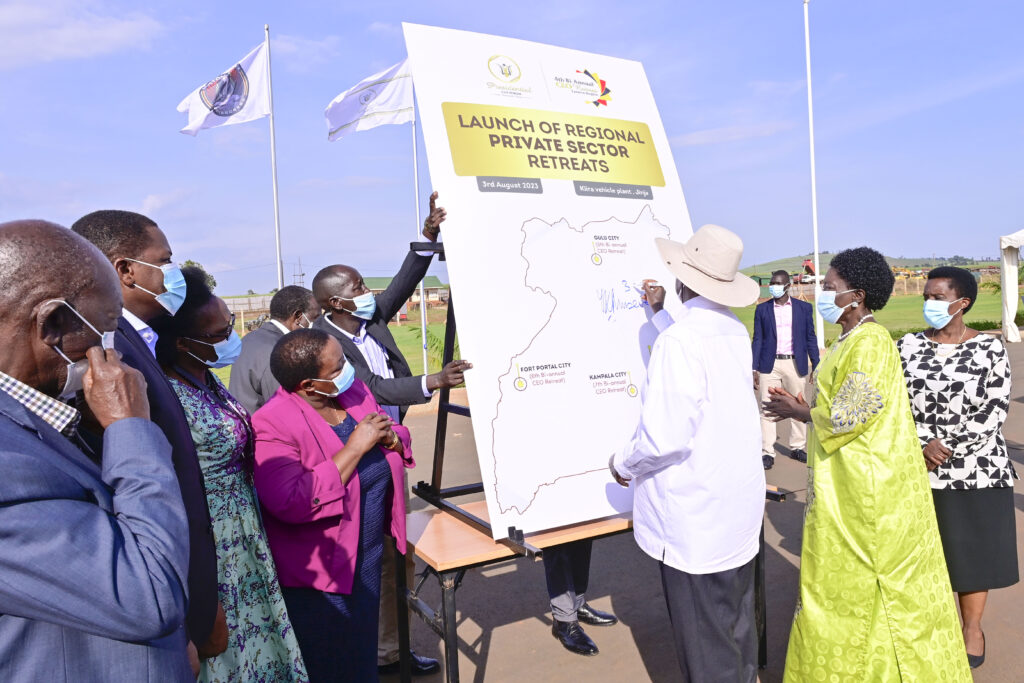
The President further called upon the political class, especially the NRM supporters and civil servants, to help Uganda attain its development goal.
“The civil servants and the confused politicians have sought to delay us but now we are determined, we have had discussions and we are going to move. Our present struggle is for this economy to jump from USD $55bn to $550bn and we can do it using the four dimensions of; the 39% of the homesteads joining the money economy, value addition, expanding and deepening the services sector and fourthly, the knowledge economy, where you use skills and innovations to produce products,” he assured.
But in order to achieve such a milestone, H.E Museveni said there are four economic dimensions which must be followed.
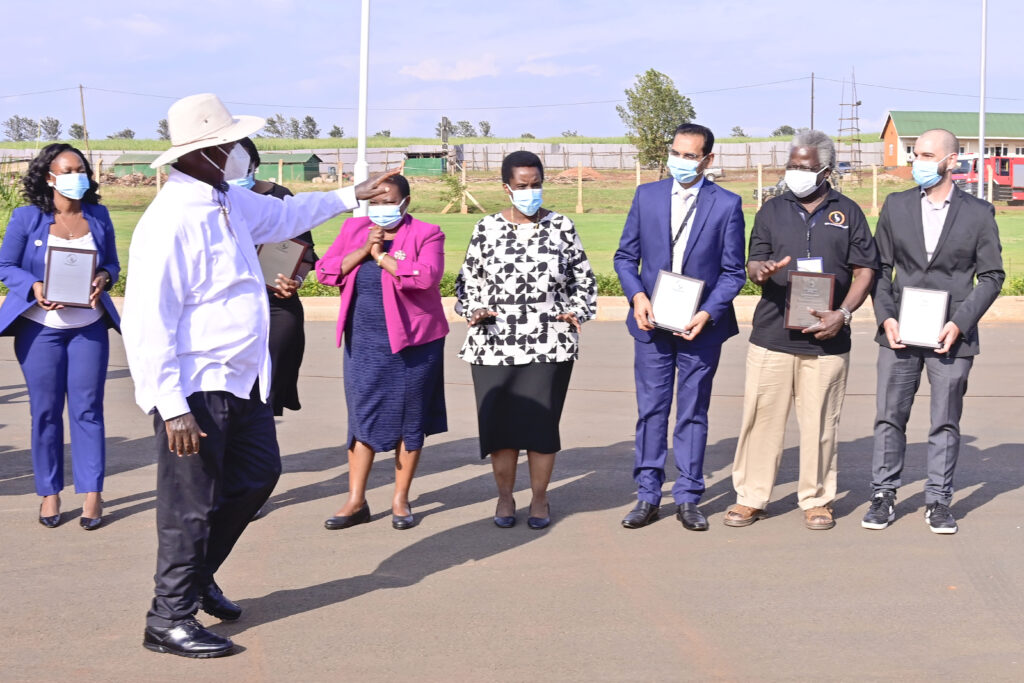
“Dimension number one is what we have already started, those in the non-money economy must be persuaded to join the money economy. When we involved the UPDF, we were able to move the 68 percent who were outside the money economy, we are now remaining with 39 percent. These are the ones we are struggling with now through the Parish Development Model and Emyooga. When all these join you are going to be able to get a lot of raw materials. You have seen with coffee, we have moved from 2 million bags to 8 million bags, and we are aiming at 20 million which we shall achieve,” he noted.
“The second dimension is value addition, followed by the expanding and deepening of the services sector like tourism, hotels and entertainment. The dimension number four is the knowledge economy where you use skills and innovation to produce products.”
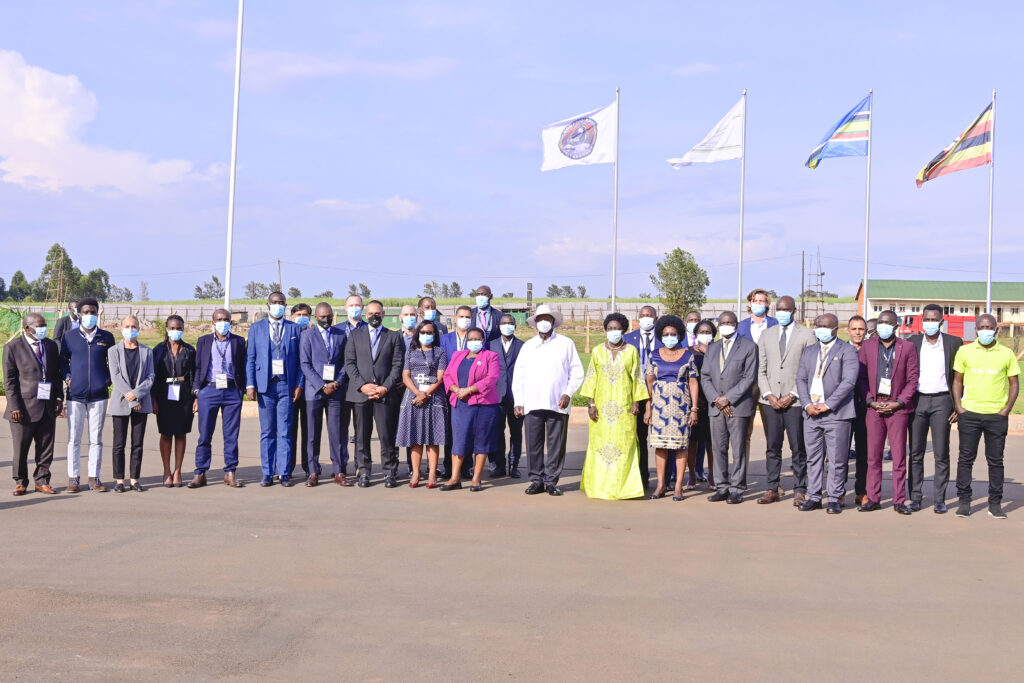
President Museveni further pledged that the government will avail Kiira Motors Corporation with Shs40 billion to complete setting up the plant in Jinja and also assured that they will support the Corporation by buying buses for government institutions.
